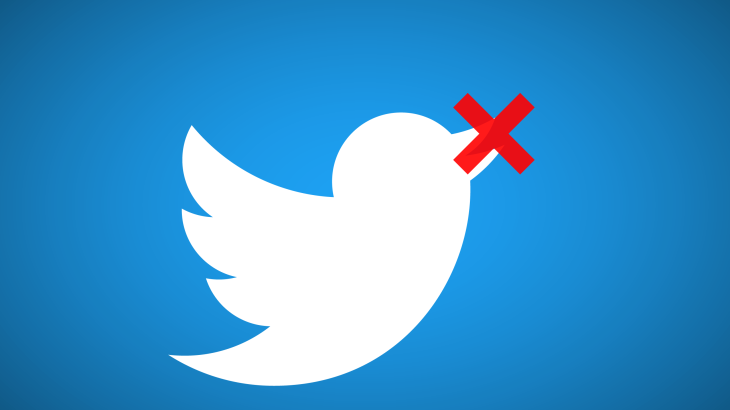The Impact of Technology on Public Opinion: How Social Media is Changing the Way We Think
Introduction
In today’s digital age, technology has revolutionized every aspect of our lives, including how we form and shape our opinions. Social media platforms have emerged as powerful tools that influence public opinion, bringing about both positive and negative effects. This article explores the impact of technology, particularly social media, on public opinion and how it is transforming the way we think.
1. The Rise of Social Media and Its Influence on Public Opinion
In recent years, social media platforms such as Facebook, Twitter, and Instagram have gained immense popularity, becoming primary sources of news and information for many individuals. These platforms have transformed the way we communicate, share ideas, and shape public opinion. The ease of access and instantaneous nature of social media have made it a powerful tool for influencing public discourse.
2. Instantaneous Information Dissemination: The Power of Social Media
One of the most significant impacts of technology, especially social media, on public opinion is the speed at which information is disseminated. Unlike traditional media outlets, social media allows for real-time updates, enabling users to share news and events as they unfold. This instantaneous nature of information sharing has led to increased awareness and engagement among the general public.
3. Echo Chambers and Filter Bubbles: The Polarization Effect
While social media offers diverse perspectives and opinions, it has also given rise to echo chambers and filter bubbles. These phenomena occur when individuals are exposed to information and viewpoints that align with their existing beliefs, reinforcing their opinions while limiting exposure to alternative perspectives. As a result, people may become more polarized in their thinking, leading to increased division and hostility in public discourse.
4. Viral Misinformation: The Spread of False Narratives
Social media platforms have become breeding grounds for the rapid spread of misinformation and fake news. Due to the sheer volume of content being shared, it becomes challenging to verify the accuracy of information before it goes viral. This phenomenon poses a significant threat to public opinion as false narratives can quickly gain traction and influence public perception.
5. Social Media and Activism: Amplifying Voices and Catalyzing Change
On a positive note, social media has played a crucial role in amplifying the voices of marginalized groups and catalyzing social change. Movements such as #BlackLivesMatter and #MeToo have gained momentum through social media platforms, allowing individuals to share their experiences, raise awareness, and demand justice. Social media has provided a platform for activism and grassroots movements to flourish, challengingexisting power structures and bringing important social issues to the forefront.
6. The Role of Algorithms in Shaping Public Opinion
Social media platforms employ algorithms that curate and personalize users’ content feeds based on their preferences and previous interactions. While this provides a tailored user experience, it also has the potential to reinforce existing biases and limit exposure to diverse viewpoints. These algorithms play a significant role in shaping public opinion by determining which information reaches individuals and how it is presented to them.
7. Social Media and Political Campaigns: Mobilization and Engagement
Technology, particularly social media, has become a vital tool for political campaigns. Political candidates and parties utilize these platforms to mobilize supporters, engage with voters, and spread their messages. Social media allows for direct and immediate communication, enabling politicians to connect with their constituents on a more personal level. It has revolutionized political campaigning and has the potential to sway public opinion during elections.
8. Social Media and Disinformation: Challenges and Solutions
The proliferation of disinformation and fake news on social media poses significant challenges to public opinion. Platforms face the difficult task of combating false narratives while upholding freedom of speech. Efforts are being made to implement fact-checking mechanisms, promote media literacy, and improve content moderation to mitigate the spread of disinformation. However, finding a balance between combating misinformation and preserving open dialogue remains a complex issue.
9. The Ethical Implications of Technological Influence on Public Opinion
The influence of technology, particularly social media, on public opinion raises ethical concerns. Questions surrounding privacy, data security, and the manipulation of user behavior come to the forefront. It is essential to navigate these ethical dilemmas to ensure that the impact of technology on public opinion aligns with democratic values, transparency, and respect for individual rights.
10. Social Media and Fake News: A Battle for Truth
Fake news has become a pervasive issue in the digital age, with social media being a primary channel for its dissemination. The spread of false information not only misleads the public but also undermines trust in credible sources and institutions. Combating fake news requires a multi-faceted approach involving media literacy education, responsible journalism, and the active involvement of social media platforms in monitoring and removing false content.
11. The Future of Public Opinion in the Digital Age
As technology continues to advance, the future of public opinion will be further shaped by emerging trends. Artificial intelligence, augmented reality, and virtual reality have the potential to revolutionize how we consume and interact with information. It is crucial to adapt and evolve our understanding of public opinion in response to these technological advancements.
12. The Psychological Effects of Social Media on Individuals
The constant exposure to social media can have profound psychological effects on individuals. Studies have shown correlations between social media usage and feelings of loneliness, anxiety, and low self-esteem. The curated and often idealized portrayal of others’ lives on social media platforms can lead to social comparison and negative self-perception. Understanding these psychological impacts is crucial in promoting healthy technology usage and well-being.
13. Social Media Regulation: Balancing Freedom and Responsibility
The influence of technology on public opinion has prompted discussions about the need for social media regulation. Balancing freedom of expression with the responsibility of platforms to ensure accurate information and protect users from harm poses a significant challenge. Governments and tech companies are grappling with finding the right balance to safeguard democracy, promote accountability, and protect individual rights.
14. The Influence of Social Media on Traditional Media Outlets
The rise of social media has disrupted traditional media outlets, transforming how news is consumed and shared. The immediacy of social media has forced traditional media to adapt to changing audience preferences and compete for attention. Social media platforms have also become a valuable source of news for many individuals, challenging the traditional gatekeeping role of media organizations. This shift in power and influence has reshaped the media landscape and the way public opinion is formed.
15. Conclusion
Technology, particularly social media, has had a profound impact on public opinion. It has revolutionized how we access information, engage with others, and shape our beliefs. While social media provides numerous benefits such as instantaneous information dissemination, amplifying marginalized voices, and facilitating activism, it also presents challenges such as the spread of misinformation and the polarization of opinions.
As we navigate the digital age, it is essential to critically evaluate the information we consume, promote media literacy, and engage in responsible online behavior. Striking a balance between the freedom of expression and the ethical responsibilities of technology platforms is crucial for ensuring a healthy and informed public discourse. By understanding the influence of technology on public opinion, we can harness its potential for positive change while mitigating its negative impacts.
FAQs (Frequently Asked Questions)
- How has social media impacted public opinion?
Social media has significantly influenced public opinion by providing real-time information, amplifying voices, and shaping narratives. However, it has also led to the polarization of opinions and the spread of misinformation.
- What are echo chambers and filter bubbles?
Echo chambers and filter bubbles refer to the phenomenon where individuals are exposed to information and viewpoints that align with their existing beliefs, limiting their exposure to diverse perspectives.
- How can social media be regulated without infringing on freedom of speech?
Regulating social media requires striking a balance between freedom of expression and the responsibility of platforms to combat misinformation and protect users from harm. It is a complex challenge that requires careful consideration.
- What are the psychological effects of social media usage?
Social media usage has been linked to feelings of loneliness, anxiety, and low self-esteem. The curated nature of social media content can contribute to negative self-perception and social comparison.
- What is the future of public opinion in the digital age?
The future of public opinion will be shaped by emerging technologies such as artificial intelligence and virtual reality. Adapting our understanding of public opinion and promoting healthy technology usage will be crucial in navigating this future landscape.







